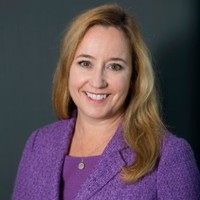Will New Corporate Tax Plans Hurt the U.S. in the End?

The winds of change are blowing when it comes to taxes and corporate taxes are no exception. President Trump and the House are both ready to lower the corporate tax rate in an effort to create a more business friendly environment for U.S. companies here in the states. Currently, the corporate tax system is a mess, which is why so many large companies keep so much of their earnings overseas, and that costs the U.S. billions in tax revenue.
The basic premise behind the current administration’s plan is to change the current model of tax on the return to capital into a model that taxes only extraordinary profits. The plan would do this by taxing corporate cash flows. The plan would make three major changes to accomplish this.
Number one, any investment outlays would not have to be depreciated over time, but instead they could be written off during the same year they were undertaken. The next major change would make interest payments to creditors non-tax-deductible. Lastly, in order to continue to promote our county’s competitiveness with the rest of the world, corporations would not have to include export receipts when they calculate their taxable income. On the other hand, they would not be allowed to deduct from their income payments to foreign affiliates and suppliers.
However, there are some who feel this plan could be very detrimental to our nation’s economy in the long run. The first problem is that the change could increase income inequality even more between the wealthy the rest of the country. The tax change could also increase uncertainty, put additional burdens on certain sectors and cause a volatile redistribution of income. The tax change could also hurt the global economy, according to some circles and the long-term of cost of making this tax change could end up causing large tax increases or spending reductions.
Of course, there are two sides to every story, so it remains to be seen what changes are made and how they will affect corporations and our nation’s financial well-being.
https://www.nytimes.com/2017/01/07/upshot/the-major-potential-impact-of-a-corporate-tax-overhaul.html?_r=0
https://www.washingtonpost.com/opinions/trump-and-ryan-are-right-to-tackle-corporate-taxes-but-their-approach-would-do-harm/2017/01/08/e7abd204-d429-11e6-9cb0-54ab630851e8_story.html?utm_term=.fd3e2b28a833
Family Businesses, Pamela Kan, President of Bishop-Wisecarver Corporation
Pamela Kan, CEO, Bishop-Wisecarver Corp. talks with the American Dreams show host, Alan Olsen, about family business and succession. Alan Olsen Hi, this is Alan Olsen and welcome to American Dreams. My guest today is Pamela Khan. She’s the president and owner of Bishop wise Carver. Welcome to today’s show. Pamela Kan Good morning, Alan.…
Using Your Money for Positive Change with Founder of Stickney Research
Using Your Money for Positive Change, with Founder of Stickney Research Warren Stickney is the founder and principal of Stickney Research, a firm that specializes in the design and implementation of net income makeup charitable remainder trusts (NIMCRT). In this interview, he discusses his passion on how to use your money for positive change in…
Committing to Humanity is So Important
Heidi Kuhn – Founder of Roots of Peace Heidi Kuhn is passionate about humanitarian work and has dedicated her life to making a difference in the world. As the founder of Roots of Peace, a humanitarian-nonprofit organization that is working to replace the scourge of landmines with sustainable agricultural farmland, Heidi, via Roots of Peace,…
The Evolution of Business Education
The Evolution of Business Education Dr. Jason Earl, Director for the Willes Center for International Entrepreneurship at BYU-Hawaii Dr. Jason Earl Transcript: Alan Can you share a little about your background? Jason I started down the path of engineering, ended up in corporate finance, ran a startup company, which sold to a private equity…




